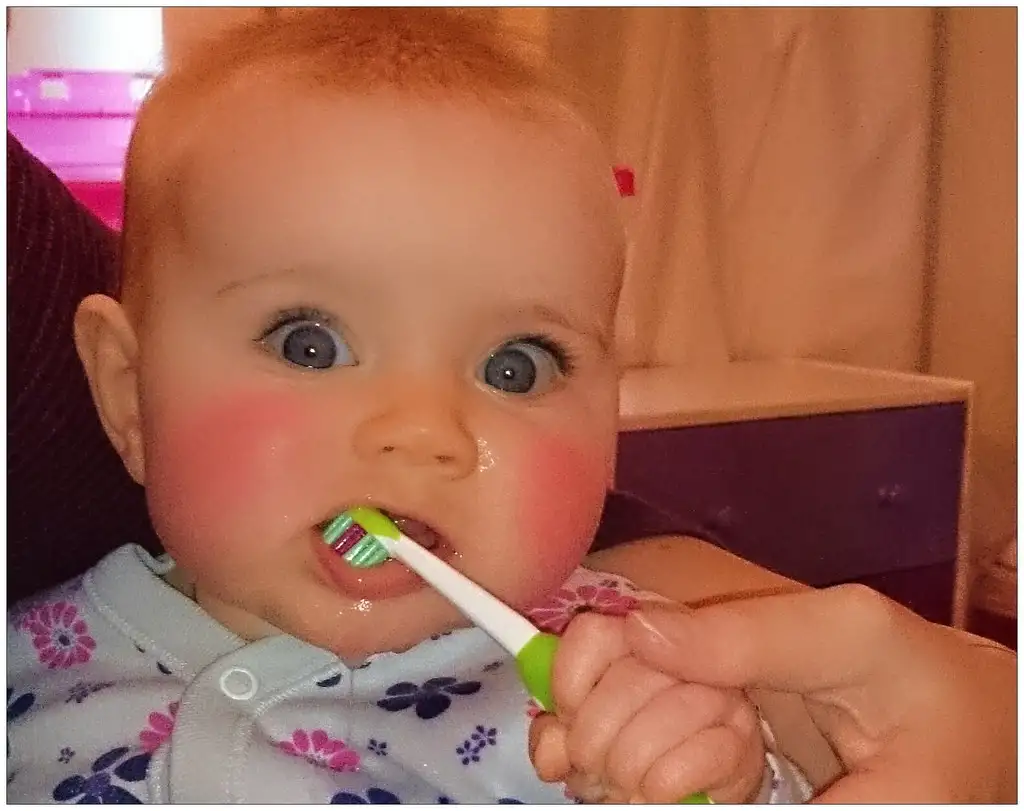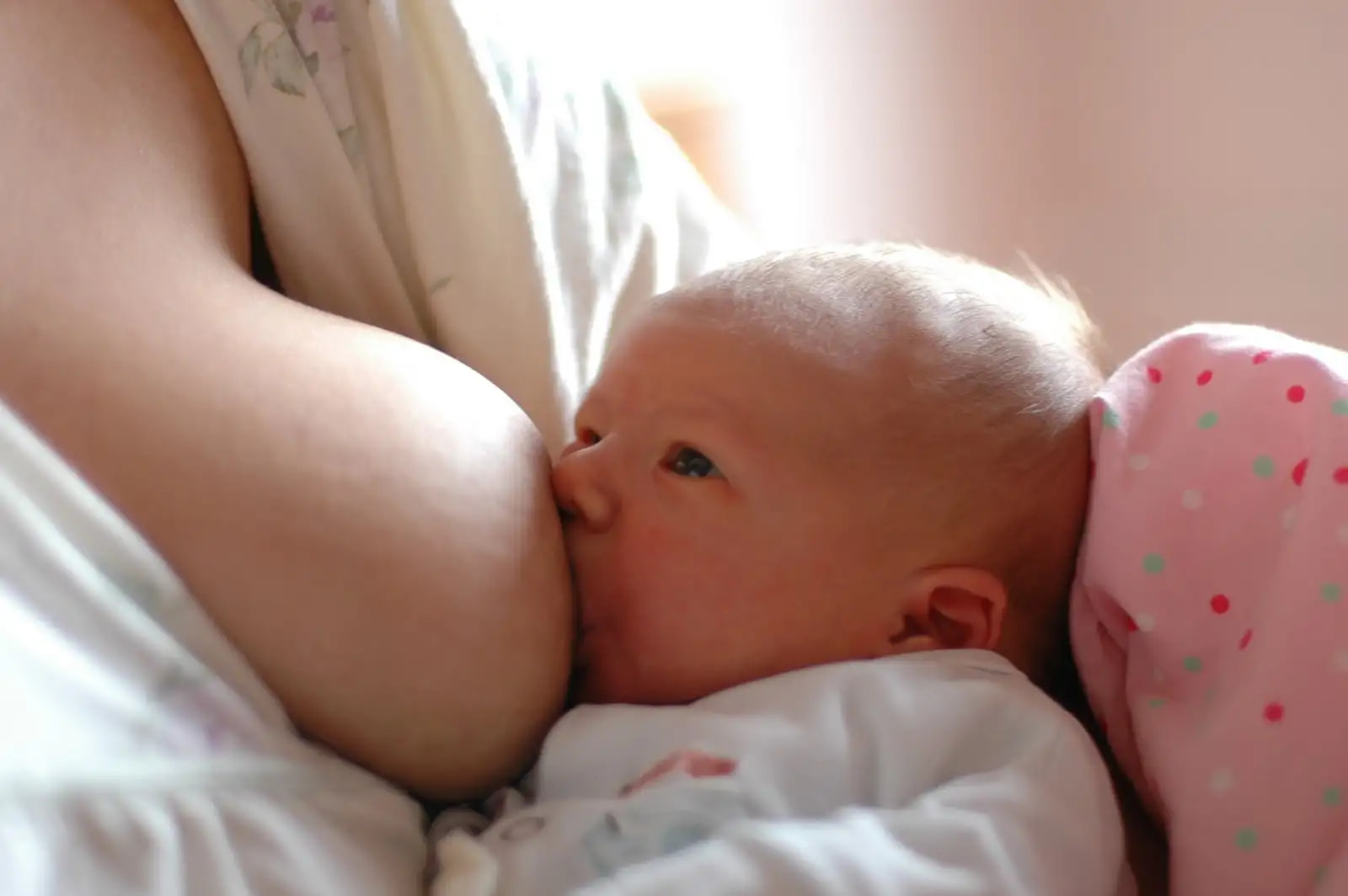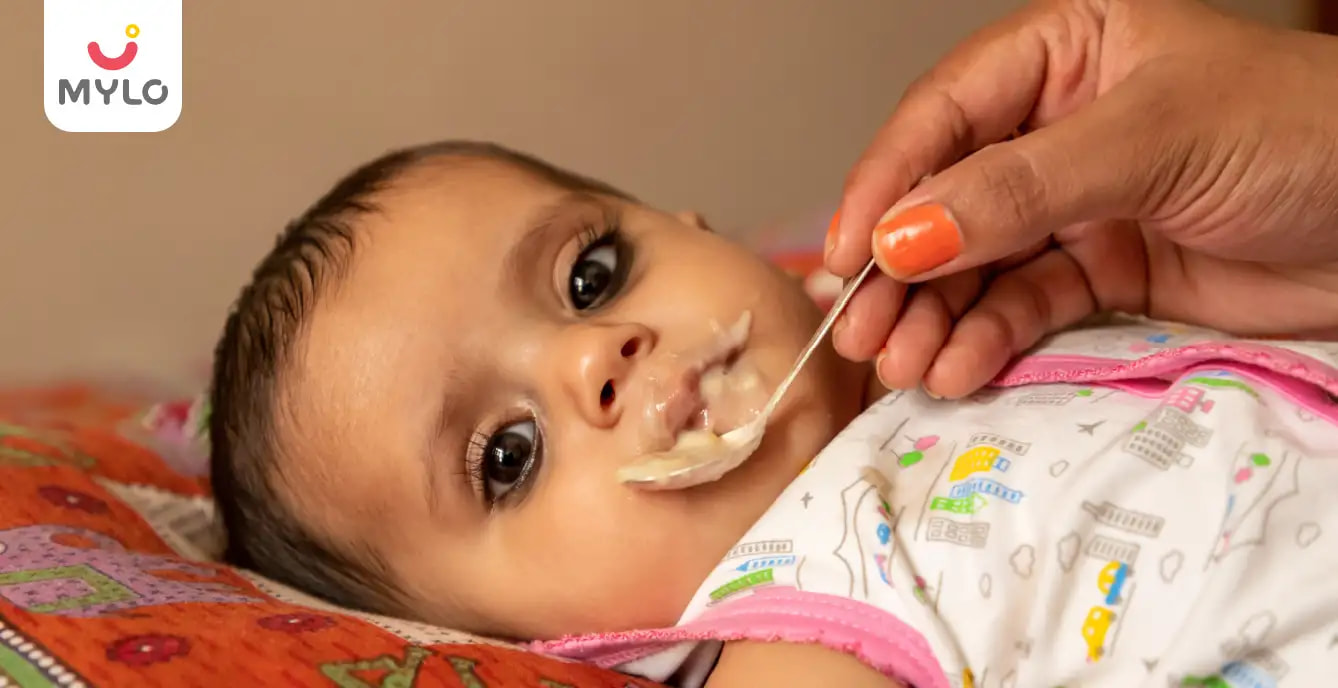Home

Feeding

How much milk should your baby have now?
In this Article
Feeding
How much milk should your baby have now?
Updated on 27 December 2022



Medically Reviewed by
Kusum Sabharwal
Obstetrician & Gynecologist - MBBS| DGO
View Profile

How much milk does a 3-month-old baby needs
"Whether my baby had enough feed?"
"How to check the quantity of milk?"
"My baby always demands more milk!"
These are the queries of new mommies in the group. Feeding can be confusing for some mothers because the baby's demand keeps on changing. Mothers are often seen anxious regarding the diet of the baby, and they are constantly worried about the baby's nutrition and growth. Take a chill pill; mom, just remembers he/she will always demand milk whenever hungry. Hunger is a natural instinct, and babies, no matter how small, will cry for food if needed.
Signs to know whether the babi is having enough milk or not
- Alertness: Few babies may not be fussy eaters and may require feeding only on demand. But note that it is mandatory to feed the babies every two hours until six months of age.
- Weight: Proper weight gain of your baby shows that the baby had a successful diet throughout the days. Hence, monitoring the baby's weight periodically is essential. In the initial days, an increase in weight is the only sign of a healthy baby.
- Count of wet and soiled diapers: Another most trusted tip is to observe your baby's number of wet nappies. It is a sure-shot indicator of whether a baby has enough milk or not. Also, check whether the urine has a dark yellowish hue, as it indicates that urine is concentrated and the baby needs more feed. A minimum of six nappies in 24 hours ensures that the baby has enough milk in a day. So, keep an eye on it, and the poop should be regular for at least two to three days.
- Signs: The most important trick is the baby's signs. After every feed, check your baby's reaction. You can find a satisfied face after a successful feed. Few babies tend to sleep after their feed, as it shows the feed is complete.
These cues apply to a breastfeeding baby, whereas formula-fed babies may need milk as the doctor prescribed, lesser than breastmilk. Babies tend to digest formula milk slower than breast milk. Also, make sure to increase the number of feeds based on your doctor's advice. Burp the baby after every feed. It is quite common to spit up after a few feeds.
For a three-month-old baby, 4 to 6 ounces of milk about six to eight times a day is the required quantity. One ounce of milk after one hour of feed is not an issue. If there is any disturbance in any of the above-mentioned points, please check with your doctor at once.
How much formula feed is required at different stages?
One of the biggest rules while feeding is that you feed your baby on demand as every baby is different, and the required changes on a day-to-day basis. In case you are wondering how much feed does a 3-week baby need then you can easily calculate using the guidelines described below. However, to settle your anxiety regarding the feed, there is a general guide about the quantity of feed needed for an infant:
- 5 days to 3 months old: 150mL per kg body weight each day.
- 3-6 months old: 120mL per kg body weight every day.
- 6-12 months old: 100mL per kg body weight every day. You can also give complementary food items at this stage.
Despite these guidelines, sometimes it gets tricky to tell whether the baby is hungry or cranky due to some other reason. The below-mentioned signs will help you to understand when your baby is actually hungry:
Signs that show that the baby is hungry
- Move their heads from one side to another.
- Open their mouths.
- Stick out their tongues.
- Brings their hands, fingers, or fists to their mouths.
- Trying to suck with their lips.
- Looking for mother's breasts.
- Showing signs of rooting reflex, which is when the baby directs its mouth in the direction of something that is touching its cheek.
Always make a point to feed your baby before they reach the melting point and start screaming due to hunger. Crying is a late response to hunger, and initially, the baby drops more subtle hints, and one must feed the baby at that moment to prevent any issues. However, remember that sometimes babies need your attention, physical touch, cuddle, and warm hug, while other times, they might be crying as they need a diaper change or have colic pain.
References
Institute of Medicine (US) Committee on the Evaluation of the Addition of Ingredients New to Infant Formula. (2011). Comparing Infant Formulas with Human Milk. Retrieved from Nih.gov website: https://www.ncbi.nlm.nih.gov/books/NBK215837/
Koletzko, B., & Shamir, R. (2006). Standards for infant formula milk. BMJ, 332(7542), 621–622. https://doi.org/10.1136/bmj.332.7542.621
Martin, C., Ling, P.-R., & Blackburn, G. (2016). Review of Infant Feeding: Key Features of Breast Milk and Infant Formula. Nutrients, 8(5), 279. https://doi.org/10.3390/nu8050279





Medically Reviewed by
Kusum Sabharwal
Obstetrician & Gynecologist - MBBS| DGO
View Profile


Written by
Ravish Goyal
Official account of Mylo Editor
Read MoreGet baby's diet chart, and growth tips

Related Articles
Related Questions
Hello frnds..still no pain...doctor said head fix nhi hua hai..bt vagina me pain hai aur back pain bhi... anyone having same issues??

Kon kon c chije aisi hai jo pregnancy mei gas acidity jalan karti hain... Koi btayega plz bcz mujhe aksar khane ke baad hi samagh aata hai ki is chij se gas acidity jalan ho gyi hai. Please share your knowledge

I am 13 week pregnancy. Anyone having Storione-xt tablet. It better to have morning or night ???

Hlo to be moms....i hv a query...in my 9.5 wk i feel body joint pain like in ankle, knee, wrist, shoulder, toes....pain intensity is high...i cnt sleep....what should i do pls help....cn i cosult my doc.

Influenza and boostrix injection kisiko laga hai kya 8 month pregnancy me and q lagta hai ye plz reply me

Related Topics
RECENTLY PUBLISHED ARTICLES
our most recent articles

Breathlessness
How to Cure Breathlessness in Pregnancy Using 8 Natural Ways?
Diet & Nutrition
Top 10 ways in which coconut water can help during pregnancy
Labour Pain
7 Signs of Labor: Know What to Expect

Toys & Gifts
Points to Remember While Choosing Toys for Your Baby

Fussy Baby
Top 10 Tips to Manage a Fussy Eater Toddler

Dental Health
Baby Oral Care: When to Start Brushing Baby's Teeth
- Top 5 Supplements That You Need to Take During Pregnancy
- Reasons To Stop Working During Pregnancy
- Aspirin in Pregnancy : Can It Harm You or Your Baby?
- Top 10 Most Popular Bollywood Movies of 2022
- Infections During Pregnancy That Can Harm Your Baby
- Top tips: Travelling with a 2-year-old
- Pregnancy Insomnia: Meaning & Causes
- Follow These 6 Labor Tips and Rock Your First Birth
- What is the Importance of Baby Kick Counting During Pregnancy?
- If you're going in for a Caesarean Delivery, go with positivity... it might be the best for you and your baby's safety.
- What should every pregnant woman know about their pregnancy in terms of weeks and months?
- Six simple but effective tips to get rid of all your pregnancy related fears
- 5 Tips to Boost Your Chances of Having a Problem-Free Pregnancy & Have a Healthy Baby
- Spider Veins: Meaning, Causes & Management


AWARDS AND RECOGNITION

Mylo wins Forbes D2C Disruptor award

Mylo wins The Economic Times Promising Brands 2022
AS SEEN IN

- Mylo Care: Effective and science-backed personal care and wellness solutions for a joyful you.
- Mylo Baby: Science-backed, gentle and effective personal care & hygiene range for your little one.
- Mylo Community: Trusted and empathetic community of 10mn+ parents and experts.
Product Categories
Baby Carrier | Baby Soap | Baby Wipes | Stretch Marks Cream | Baby Cream | Baby Shampoo | Baby Massage Oil | Baby Hair Oil | Stretch Marks Oil | Baby Body Wash | Baby Powder | Baby Lotion | Diaper Rash Cream | Newborn Diapers | Teether | Baby Kajal | Baby Diapers Pants | Cloth Diapers | Laundry Detergent | Lactation Granules |








